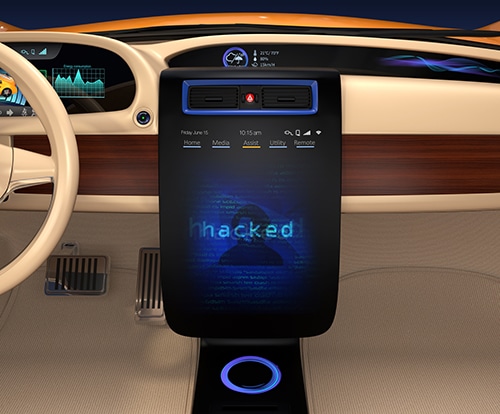You could be forgiven for feeling rather technologically short-changed here in 2017. After all, the original Blade Runner is set only two years from now, whilst Back to the Future supposedly took place two years back. I don’t know about you, but I’m still waiting for my hoverboard.
The term ‘Internet of Things’ (which still sounds slightly terrifying) has been kicking about for a few years now and, depending upon who you listen to, has long been promising to make our lives easier.
Predictions for what might one day be connected to the IoT range from the bizarre to the more prosaic, but it’s safe to say that we’re still waiting for it to genuinely impact upon our lives. Not so long ago, experts were predicting that by 2020 a staggering 50 billion devices (not including computers and smartphones) would be connected to the internet and communicating with both each other and us. This figure has since been revised downwards, and it’s hard not to wonder whether this technological great leap forward may have been talked up a little too much.
The simple fact is that the linking of billions of individual devices to the internet still presents massive problems, not least of security and power.
Securing IoT with Blockchain
 Imagine for a moment living in a house where your fridge, kettle, boiler, toothbrush, pet’s collar, slippers (yes, really) and any number of other seemingly innocuous objects are all online, transmitting and receiving data. That’s a hell of a lot of entry points for bugs or hackers to get inside your life and potentially wreak havoc. How would you know which device was corrupted? It’s a kind of scary thought that your toothbrush could be sitting there plotting your downfall with you blissfully unaware.
Imagine for a moment living in a house where your fridge, kettle, boiler, toothbrush, pet’s collar, slippers (yes, really) and any number of other seemingly innocuous objects are all online, transmitting and receiving data. That’s a hell of a lot of entry points for bugs or hackers to get inside your life and potentially wreak havoc. How would you know which device was corrupted? It’s a kind of scary thought that your toothbrush could be sitting there plotting your downfall with you blissfully unaware.
Security aside, all these potentially linked devices would also require massive computing power, far beyond what is currently available. These two issues alone are huge stumbling blocks to mass adoption.
But, as is the case in so many other fields, blockchain may potentially provide a solution. You know blockchain by now: the immutable digital ledger technology behind Bitcoin which logs all transactions and is distributed across a network of personal computers, free from the vulnerabilities (and corruptibility) of a centralised hub or authority. The geeks are busy getting very excited about it.
It’s these characteristics which make blockchain a vastly more secure way of sending and processing information and which could make the safety of a massive network of devices more realistic.
As to the issue of power, there is a blockchain-based system of peer-to-peer energy trading which could make serious inroads into offsetting the demands put on the grid by internet-enabled devices. Several start-ups have recently emerged which allow individuals to trade the excess energy they produce at home through solar panels and other renewables. Companies like Power Ledger are already generating excitement and investment by promising to revolutionise the energy market.
It should be pretty clear from reading this that, whilst blockchains are beginning to provide solutions to some of the stumbling blocks to the IoT, we’re still some way off the mass adoption that we were assured was coming our way. And perhaps that’s a good thing. There are those who argue quite persuasively that the internet is already ubiquitous enough, thanks all the same.
Mind you, if the IoT ends up eventually providing those hoverboards, perhaps they wouldn’t complain quite so loudly.



